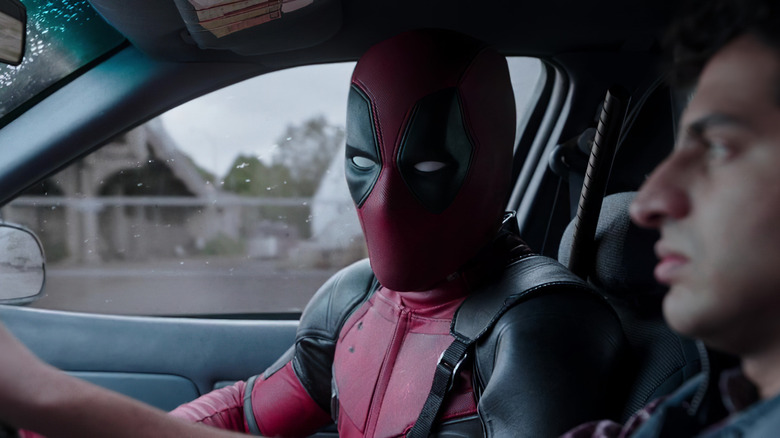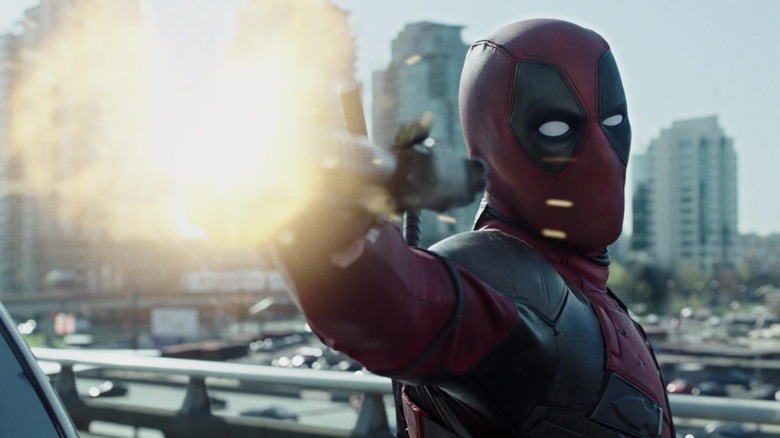The Deadpool Team Knew It Was Risky Making A Movie That Couldn't Be Seen By Teens
With the exception of some of our darker and grittier Batman reboots, superhero movies have typically been films that the whole family can enjoy together. Sure, Iron Man may occasionally make a rude joke or two, but ultimately you're not going to see a ton of blood, gore, or death.
"Deadpool" was a gigantic exception to this rule. Or, maybe not quite an exception so much as a huge middle finger toward the rule. The movie, which was a surprise smash hit in 2016, is among the few superhero films that managed to get an R-rating. It achieved this rating through basically every means you can; swearing, sex and nudity, violence and gore, the whole enchilada.
The movie was always meant to be this irreverent, according to star Ryan Reynolds and director Tim Miller. In a Collider interview from 2015, Reynolds said he wanted to make a different kind of comic book film.
"Well, every comic book movie I go to nobody f**king dies! I mean, like, everybody's getting shot at, it's like an episode of 'The A-Team,' y'know, everyone's shooting the ground- so, we get an opportunity to do this in a way that follows all the scripture that Deadpool's laid out, which is fourth-wall breaking, that kind of mercenary sensibility and humor and then we also have this opportunity, which is very rare in this world, to do something that's not necessarily for just kids."
While the movie's raunchiness certainly suited the Deadpool character, it also introduced a set of challenges in terms of marketing the movie. With such a huge portion of most comic book movies' audiences being teens and children, the movie's R-rating cut off a huge demographic of potential viewers.
Creative marketing
According to a 2016 Entertainment Weekly interview with Fox's then-head of domestic marketing, Marc Weinstock, this obstacle was something the film's team was acutely aware of.
"Because it was made for $58 million, we knew it wasn't like, 'How are we going to get every single person all at once, all audiences. Because we're R-rated, we can't get teenagers, so how do we get a bunch of adults?' It wasn't really a fear, but a challenge, because we knew that we'd get an audience to see this, and we really wanted to blow it out."
It was their awareness of this hurdle to the movie's success that led to some creative marketing campaigns, including one where they bought out literally all of the ad space for three-hour blocks across five Viacom networks. This meant three hours of television where the only commercials were for "Deadpool."
The movie's marketing was clearly a success, as they managed to gross almost 800 million dollars worldwide, as well as spawning a sequel with another in the works.
While movies like "The Dark Knight" proved that society was ready for superhero movies that were meant to be watched by adults, "Deadpool" took that rule and multiplied every aspect by ten. "Deadpool" isn't so much for adults as it is very much not for kids, and any naive parent who took their child to see it in theaters probably quickly regretted it.

